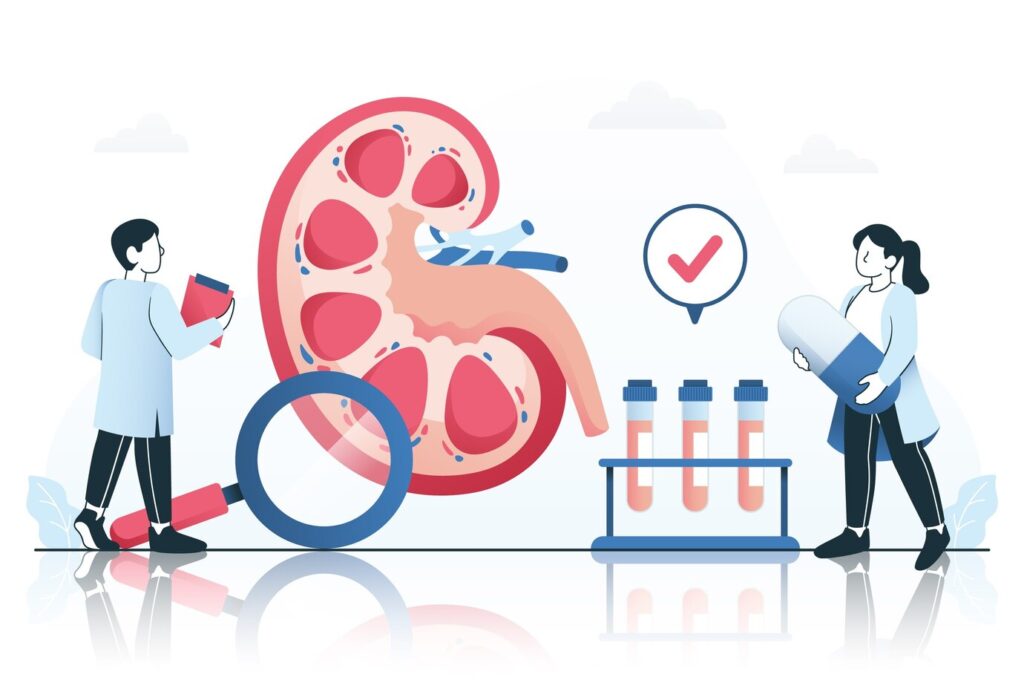The Emotional Impact of Kidney Disease and Transplant

Living with kidney disease and undergoing a transplant journey involves not only physical challenges but also significant emotional ones. Individuals with kidney disease often face prolonged treatments, lifestyle changes, and uncertainty about their health. A kidney transplant, while often life-saving, brings its own set of emotional hurdles and adjustments. Navigating these emotions is essential for overall well-being and a positive outcome. Here’s a look at the emotional impact of kidney disease and transplant, and some ways to cope.
1. Fear and Anxiety: Facing the Unknown
- Before Treatment: A kidney disease diagnosis can bring feelings of shock and fear. The unknowns of disease progression and possible treatments, including dialysis and transplants, can be overwhelming.
- During Transplant: Many patients experience pre-surgery anxiety, worrying about potential complications or the success of the procedure.
- Coping Tips: Education about kidney disease and treatment options can help ease some of this anxiety. Counseling or support groups provide a safe space to discuss fears and gain insights from others going through similar experiences.
2. Depression and Feelings of Loss
- Impact of Dialysis: Dialysis, often a long-term commitment, can lead to feelings of frustration, isolation, and even sadness due to lifestyle restrictions and fatigue.
- Post-Transplant Adjustment: After a transplant, patients may feel an unexpected sense of loss for their previous routine or grapple with the pressures of maintaining strict medical regimens.
- Coping Tips: Recognizing and addressing feelings of loss is important. Many find relief through therapy or by reconnecting with activities they enjoy in modified ways. Building a strong support system with family and friends can also help mitigate feelings of isolation.
3. Guilt and Responsibility Toward Donors
- Living Donors: For those who receive kidneys from living donors, it’s common to feel a sense of guilt or debt toward the donor, whether they are family, friends, or anonymous donors.
- Coping Tips: Open communication with donors, family, and healthcare professionals can help. Engaging in mindfulness exercises or journaling may also provide an outlet for these complex emotions.
4. Hope and Resilience: Finding Strength in Recovery
- Post-Transplant Hope: The chance for a new start brings a renewed sense of hope. However, balancing this with realistic expectations is essential, as there may still be medical challenges and lifestyle changes to manage.
- Building Resilience: Many people report that their transplant journey gives them a new outlook on life. Practicing gratitude, engaging in creative outlets, and celebrating small recovery milestones can nurture a sense of resilience and purpose.
- Coping Tips: Focusing on personal growth, sharing the experience with others, or getting involved in transplant advocacy groups can help foster positivity and resilience.
5. Maintaining Emotional Well-being for Long-Term Health
- Importance of Self-Care: Physical health is closely tied to emotional well-being, especially in the case of transplant patients. Adhering to medication routines, following up on regular check-ups, and engaging in mild physical activity are essential for physical recovery, while also boosting mental health.
- Mindfulness and Stress Management: Mindfulness, meditation, and deep-breathing exercises are proven methods for reducing stress and managing anxiety. Regular practice of these techniques can make handling emotional ups and downs more manageable.
- Finding Meaning and Purpose: For many, the transplant journey becomes a source of inspiration and personal growth. Embracing the opportunity to share their story, support others, or even engage in volunteer work within the transplant community can lead to a more fulfilling life.
Conclusion
The journey of living with kidney disease and undergoing a transplant is filled with emotional ups and downs, but recognizing and addressing these emotions can pave the way for a more positive experience. Support systems, therapy, mindfulness, and setting realistic expectations can all play a significant role in helping patients navigate their journey. Each individual’s experience is unique, but by understanding the emotional impact of kidney disease and transplantation, patients and their loved ones can work together toward a healthier, happier life.


Leave a Reply